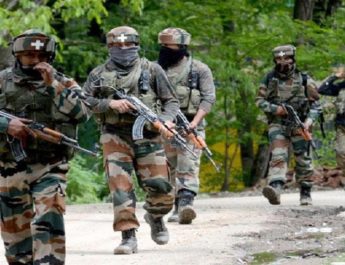Report: Raja Syed Rather
KASHMIR: The District Development Commissioner, Ganderbal Shafqat Iqbal visited Government Unani Medical College Nawabagh Ganderbal yesterday to inspect the progress on developmental works.
DDC was accompanied by SSP Ganderbal, Khalil Poswal, Tehsildar Wakura, DGM J&K Housing Board, Nodal officer Unani Medical College besides other concerned officials.
During his visit DDC took round of all blocks and inspected the progress of construction works of academic and Hospital building executed by J&K Housing Board which is being constructed at a budget of Rs 32.50 crore, under languishing scheme.
The DDC was informed that about 80% construction work has been completed and building is in its final stage. It was also revealed that 22.25 crore has been released till date while an amount of Rs 9 crore stands approved under Languishing Scheme.
While inspecting the under construction building, the DDC directed the executing agency to augment the pace of progress by way of increasing man power so that the prestigious project gets completed within the stipulated .
He also urged the Nodal officer to start the required preparations for admission to 1st year batch of BUMS for the current session, 2020-2021.
On the occasion the Nodal officer, Unani Medical College briefed the DDC about the overall issues and fulfilled requirements for starting first batch of BUMS in college. He also raised issue of relocating security forces which are deployed within the premises of college.
In this regard the DDC asked the SSP Ganderbal to take necessary measures for relocating the deployed security forces so that 1st batch of BUMS will be starting well on time.
Later, DDC also inspected all OPD Sections including Medicine, Surgery, Obs. & Gynae and Regimental therapy of the hospital which had been made functional in last November. He was informed that the hospital shall be made fully functional in the coming month by deploying the required staff by college administration. It was also informed that about five thousand patients have been treated till date by distribution of free medicine.



